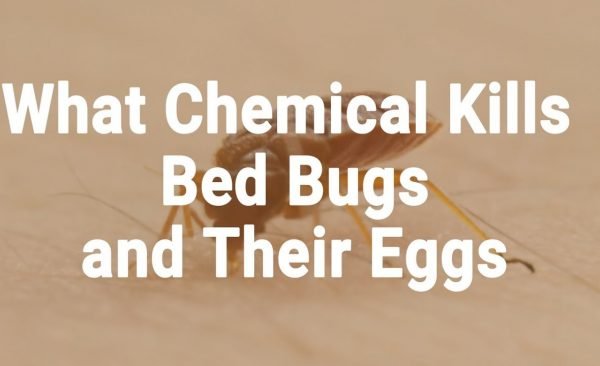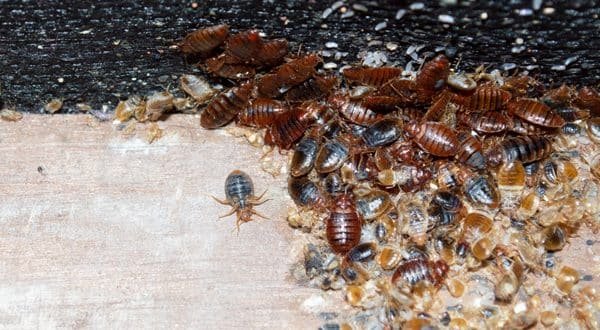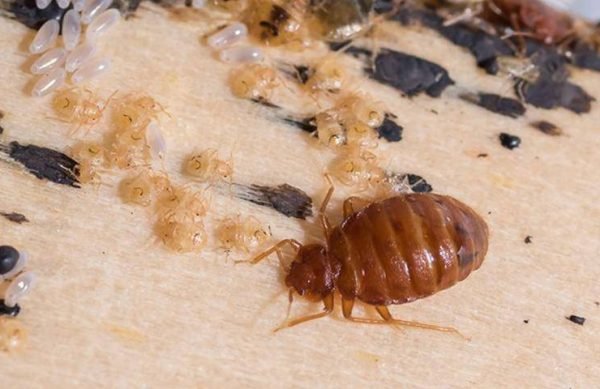If you have bedbugs in your home, and you or your family are being bitten, you are likely desperate to get rid of them fast. Chemicals are one way to kill bedbugs quickly. We’ve provided a list here of some chemicals that will kill bedbugs. We STRONGLY recommend, however, that you proceed in using chemicals on bedbugs with caution and only with the help of a trained bed bug extermination professional. It is likely that the bedbugs will outsmart you if you use chemicals. You can make a bad situation worse by causing the bugs to spread, or even causing the bedbugs to become resistant to the chemical. If you are working with a bed bug extermination professional and using chemicals as part of a traditional and comprehensive bed bug treatment plan, take a look at some of the chemicals below and discuss them with your professional before treatment. You may be able to achieve results using chemicals if a plan is in place to prevent their spread.
Chemicals That Kill Bedbugs
Note that you will not find Foggers on this list, because most pest professionals have found foggers to be ineffective in killing bed bugs, much less fixing the problem. We’ve included five “types” of chemicals that have been tested and confirmed bed bug killers.
Desiccants
Desiccants work by destroying the waxy layer that covers a bed bug. Without this “armor”, they will dehydrate and die. They are a preferred natural bed bug remedy and there is no evidence that bed bugs can become resistant to these substances. Desiccants include:
Diatomaceous Earth
Boric Acid
Biochemicals
Cold-pressed Neem Oil, a natural oil from a tropical evergreen tree, is the only EPA registered biochemical pesticide for bed bugs.
Commercial Sprays
There are a few commercially available sprays that may kill bedbugs after prolonged contact (and only as long as the spray remains wet on the surface). Products like SteriFab and Bedlam are known as low-toxicity sprays that can kill on contact. This does mean, however, that you need to find and spray every single bed bug in your home. We do not – and will not – recommend alcohol-based sprays because they don’t kill bed bug eggs, the most important thing to kill. Also, they are flammable and we do not recommend using them in the home.
Pyrethoid Sprays
Pyrethoid sprays can be found in retail stores and are used by some bed bug exterminators. You have to check the ingredients list on the back of a spray to determine if it contains the chemicals Permethrin, Allethrin, Resmethrin, Cyfluthrim, or Esfenvalerate. These types of sprays are stronger chemicals, so it’s important to exercise caution and only use it when there will not be children or pets in the home. It is important to note that there are a number of Pyrethoid sprays that bedbugs have become resistant to, so this is likely not the best solution.
Isopropyl Alcohol
Rubbing Alcohol, which you likely have in your home, can kill bedbugs on contact. It should be used with caution because it can damage furniture and carpet. Bedbugs have an excellent sense of smell and may move quickly to another location if they detect alcohol. Also, it evaporates quickly, and can only kill bedbugs if it comes into contact with the bug while wet.
Key Takeaways
If you have bedbugs, PROCEED WITH CAUTION. A half-baked bed bug extermination plan can make the infestation worse. It can create an even bigger headache for you than the smell of pesticides, so it’s always best to call a bedbug extermination professional at the sign of the first bug!






